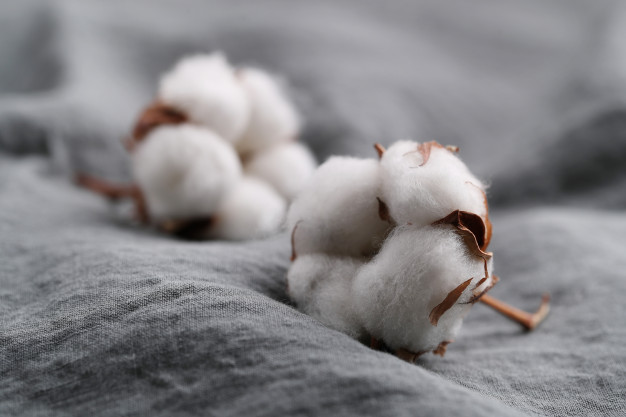We all know that we feel better after a great night’s sleep, energized, rested, and recuperated are some of the words we could use to describe the feeling. In tandem, we all know the value of eating healthily too, and eating organic is synonymous with ‘health’. But, did you know that you can sleep organically too? The benefits to your general well-being are palpable, here’s why.
Plastic vs. Natural Rubber

Regular, mass-produced, mattresses are made with the polyurethane which is plastic. We often think of plastic as being firm. But, here’s the thing, plastics pervade our lives they are used as drinks for our containers as well as the soles for our trainers. The same plastic can be made super hard or spongey by adding different chemicals.
Rubber, however, is a natural material that is harvested from a tree. By adding natural materials (like graphite) to the rubber and heating it the rubber can be turned into a completely natural product that has the same properties as memory foam. The benefits? No chemicals are ‘off gassed’ by the natural latex — the only potential negative can be a slight vanilla odor.
Plastic vs. Wool
Because plastic is an artificial material it won’t have the same benefits in terms of keeping you cool as a natural product. A sheep can keep itself cool during the summer and warm during the winter by dint of its wool. Wool can ‘wick away’ moisture when the temperature rises but also retain the heat when it’s. In a way, its nature’s wonder material making a Snoozel Green Handmade Natural Organic Mattresses are the perfect way to get a good nights to sleep at any temperature.
Plastic vs. Organic Cotton

Similarly, organic cotton, in its purest form, has innate properties that help keep you cool. Cotton is super lightweight and breathable which helps keep you cool. When its hot cotton can help soak up a sweat but when it’s combined with organic wool that moisture gets wicked away. How does plastic stack up against these two naturally ‘super’ materials? Traditional memory foam mattresses contain isocyanates (highly reactive, low molecular weight chemicals) which can be harmful to one’s skin and can also invoke respiratory problems, like asthma.
Sustainability and the environment
As well as being better for your body organic products are better for the environment. Why? Organic products don’t use any harmful chemicals. The absence of these has a dual benefit for you and the people who produce the materials. For instance, cotton is usually produced in developing countries where adherence to sound environmental practices where might fall below those of their developed contemporaries. Organic cotton, however, will not affect the local fauna and flora. Chemical nasties are as harmful to the people who grow the products as they are to your body.
Buying organic produce is better for farmers

Organic products, especially ones that are certified by the GOTS (The Global Organic Textile Standard) not only certify the end product is organic but that the production of these products is fair and ethical, right across the supply chain. For instance, the GOTS encourages farmers to not only grow completely organic but also ‘intercrop’. Intercropping is the notion that farmers should not just encourage a mono-culture but also plant other crops between cotton, say. This has two big tangible benefits for the farmer. Firstly, they get another crop to take to market, and secondly, they can grow their own food. Of course, using organic crops also means that no genetically modified materials will be used and though the jury is out on GMO if you want organic, natural will always be best.
Sustainable forests

We all know that trees give us oxygen. Indeed, the Amazon rainforest is called the lungs of the world. Buying a product that uses materials derived from FSC (Forest Sustainability Council) wood will both ethical and sustainable. For instance, sustainably sourced latex will come from rubber trees where the water they are fed with is uncontaminated. The FSC also prevents the harvest of rare, old-growth forest and with no hazardous chemicals. Sustainable rubber is also harvested by hand and none of the trees are harmed during this process.
Less Co2

One of the key reasons the earth is warming is due to the excessive amount of Co2 in the atmosphere. Carbon dioxide is released into the air due to fossil fuels and through our mechanized farming processes. Sleeping organic will mean that the mattress you are sleeping on will have caused fewer greenhouse gases to be released. For instance, Latex harvested from sustainable rubber will have been made using The Dunlop method. As the name suggests, this method was developed by the pioneers of rubber production in 1929. The process consumes five times less energy than the modern method of producing rubber.
Naturally fire retardant
Sleeping organic doesn’t mean you need to compromise on your or your family’s safety. The natural materials an organic mattress is made from are, by their nature fire-resistant. For instance, wool is tightly woven which means there is less oxygen for a fire to take hold. The natural latex used in an organic mattress has graphite added to it which discourages flames from taking hold.
Good sleep is not just about a good mattress

We’re not saying a natural mattress will be a panacea for curing all of your sleep problems. Looking after your health is muti dimensional and interconnected with your sleep. Drinking too much alcohol, for instance, will disturb your sleep. Not exercising regularly will also have an impact and too much or too little of these will disturb the delicate balance in your body. But if you are starting to think seriously about your health and wellbeing (and let’s be honest, recently who hasn’t?) a natural, organic mattress could be a good place to start. The beauty of a good natural mattress is that you will be looking after the world, your sleep, and your health in one smart and ethical purchase.

